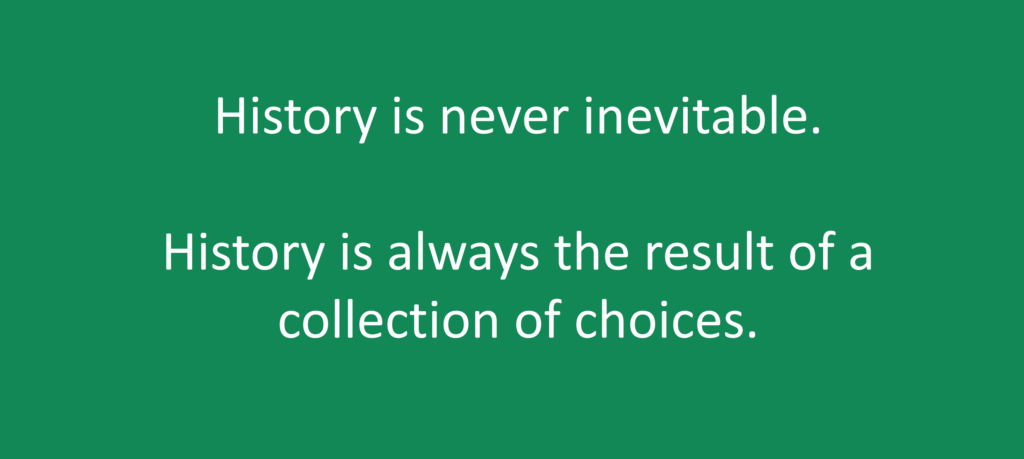I recently attended a lecture by Brendan Murphy, a historian and teacher, who reminded us that history is never inevitable. History is always the result of a collection of choices. And those choices can always be different.
Those comments resonated deeply with me.

When we notice someone or a group of people in distress, we choose if and how we connect.
When we witness harmful or dangerous behavior, we choose if and how we advocate.
When we identify a policy with a negative impact, we choose if and how we respond.
When we feel concerned about work, our relationships, or the world, we choose if and how we engage.
Will we try to mend what is broken, or will we throw it away?
Will we behave in the same way we expect others to behave, or will we abide by different rules?
Will we address challenging situations, or will we ignore them?
Will we engage directly with those who express different views, or will we walk away?
Will we endure harmful situations, or will we leave them?
Will we support others, or will we focus only on ourselves?
Will we seek help when needed, or will we suffer alone?
Will we engage with and assist our larger communities, or will we remain in our own, smaller circles?
Will we stand up for those who are mistreated at work and in our communities, or will we remain silent?
Will we protect others from harm, or will we focus on shielding ourselves?
Will we seek to improve the world, or will we keep our heads down in hopes that things will be ok—at least for us?
We don’t and can’t control all decisions and actions. What we can do is make choices on how we engage—with ourselves, our families, our colleagues, our communities, and our larger world.

